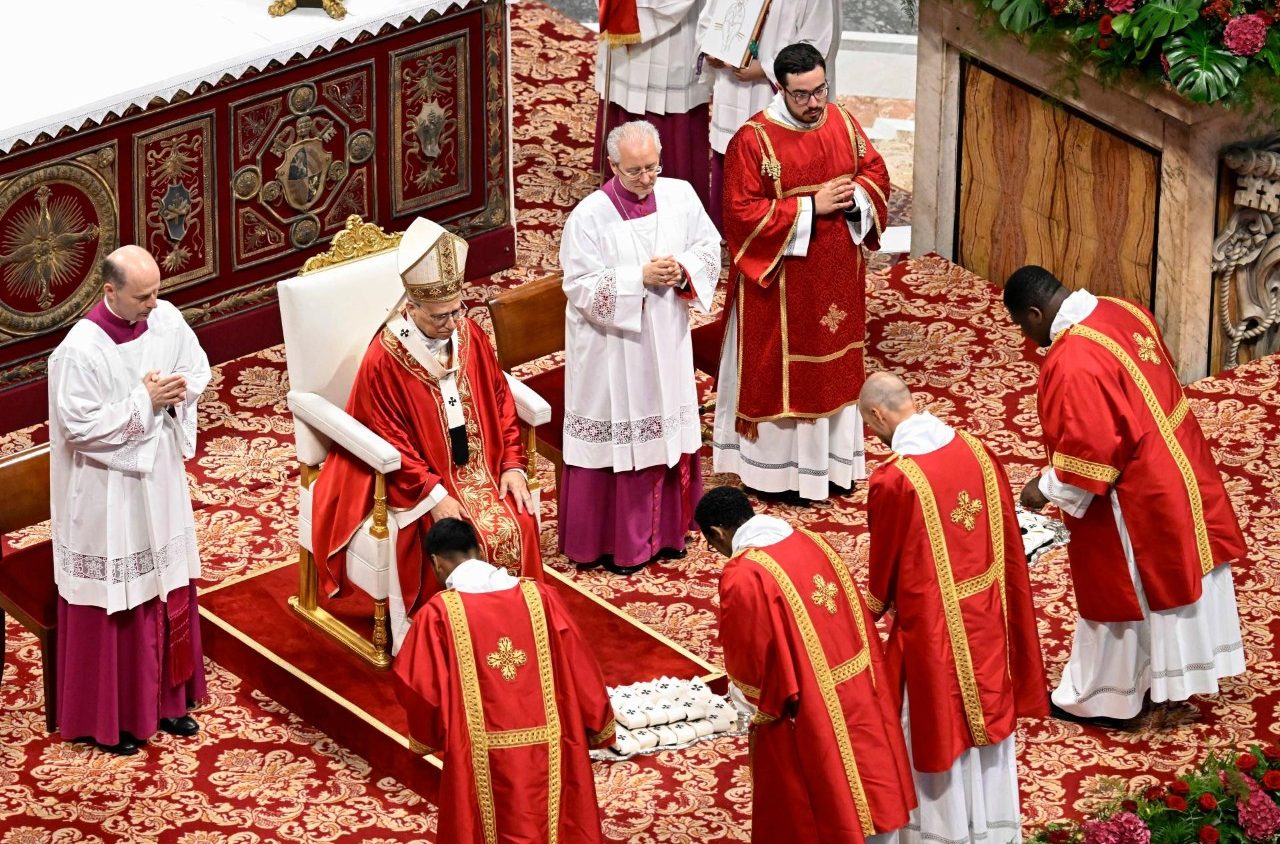Vatican City – This morning, in St Peter’s Basilica in the Vatican, Pope Leo XIV presided over the solemn Eucharistic Celebration on the Solemnity of the Holy Apostles Peter and Paul, patrons of the City of Rome and pillars of the universal Church. During the Holy Mass, which began at 9:30 a.m., the Pope imposed the Sacred Pallia — taken from the Confession of the Apostle Peter — upon the newly appointed Metropolitan Archbishops of the past year.
Numerous Cardinals, Bishops, Priests and faithful took part in the celebration, united in prayer for the new Pastors of the Metropolitan Churches and in living memory of the Apostles Peter and Paul, martyrs for Christ and fathers of the faith. Also present was the Delegation of the Ecumenical Patriarchate of Constantinople, which had met with the Pontiff the day before.
Communion in Diversity
In his homily, Leo XIV recalled the spiritual heritage of the two great Apostles, highlighting two central aspects of their witness: ecclesial communion and the vitality of faith.
“The story of Peter and Paul also challenges us,” said the Pope, “as a community of the Lord’s disciples journeying through our own time.”
The communion between the two, he explained, was not the result of uniformity, but rather the fruit of a journey shaped by the diversity of their backgrounds, characters, and apostolic sensibilities. A unity that managed to hold together diversity and evangelical frankness: “One single day is dedicated to the feast of the two Apostles. But they too were one,” he recalled, citing St Augustine.
A timely lesson for today’s Church, called to live a communion that is harmony and not uniformity, dialogue and not imposition, symphony and not monologue. The Pope invited all to cultivate concrete fraternity: among laypeople and priests, priests and bishops, and between them and the Pope himself, without neglecting the importance of this logic in ecumenical dialogue and in relations with the world.

A Living and Restless Faith
The second theme offered by Leo XIV concerns the vitality of faith: “In the history of the two Apostles, we are inspired by their readiness to embrace change, to seek new paths for evangelisation.”
Against the risk of a habitual or merely ritual faith, the Pope called for a faith that is open, dynamic, and capable of questioning and being questioned by reality.
At the heart of the homily stood the question posed by Christ: “But who do you say that I am?” (Mt 16:15) — a perennially relevant question that cannot leave us indifferent: “Who is Jesus Christ for us today? What place does He hold in our lives and in the life of the Church?”
The Christian life, he reaffirmed, must not be reduced to a legacy of the past, but must be a living response to this ever-new question.
The Meaning of the Pallium and Final Greetings
At the conclusion of the celebration, Leo XIV extended a special greeting to the Metropolitan Archbishops who had just received the Pallium, a symbol of unity with the Bishop of Rome and a sign of their pastoral ministry in their respective local Churches. “Nourish the faith in the communities entrusted to you,” the Pope urged them.
A thought of gratitude was also expressed to the Delegation of the Ecumenical Patriarchate of Constantinople, led by the representatives sent by His Holiness Bartholomew, as well as to the members of the Synod of the Ukrainian Greek-Catholic Church, present as a sign of communion and hope. “May the Lord grant peace to your people,” the Pontiff exclaimed with heartfelt conviction.
Walking Together in Faith
On this day that unites Rome with the glorious memory of Peter and Paul, Leo XIV invited all the faithful to draw inspiration from the witness of these two Apostles, who — though different — knew how to walk together in faith and in the offering of their lives.
And with a powerful final exhortation, he urged: “Let us walk together in communion and faith, and invoke their intercession upon the Church, Rome, and the whole world.”
d.S.A.
Silere non possum